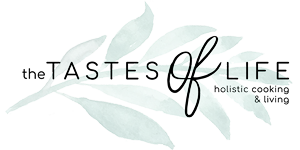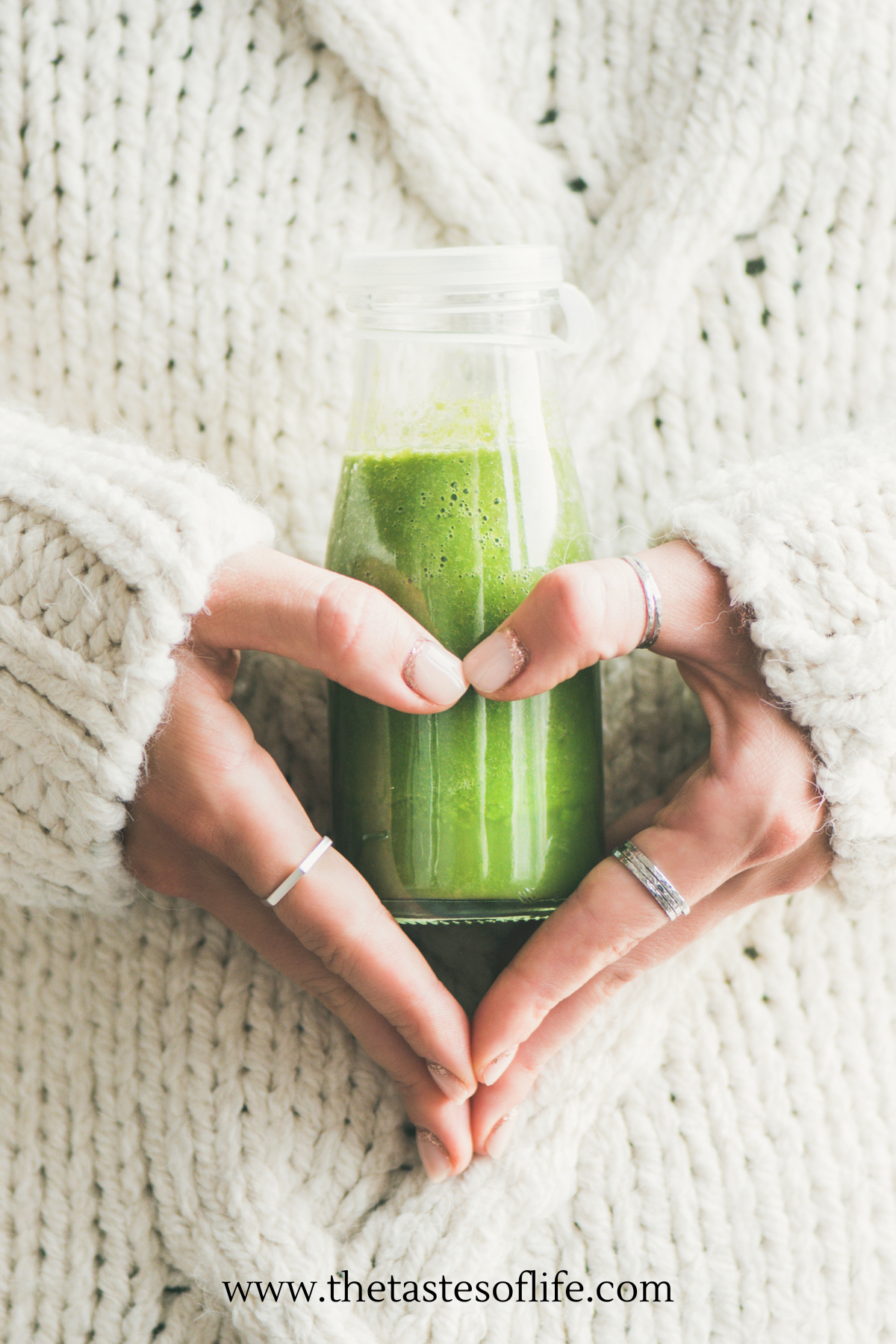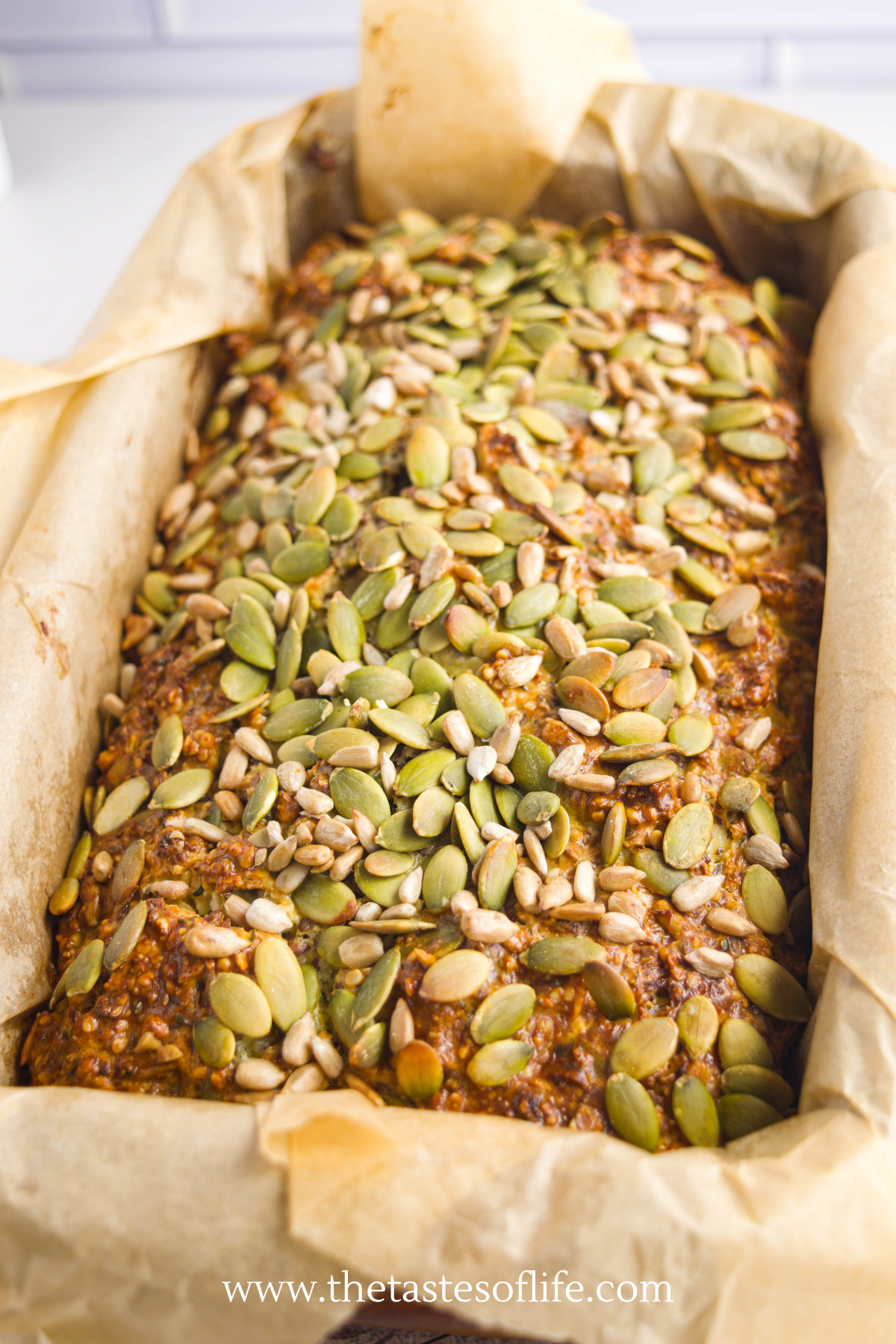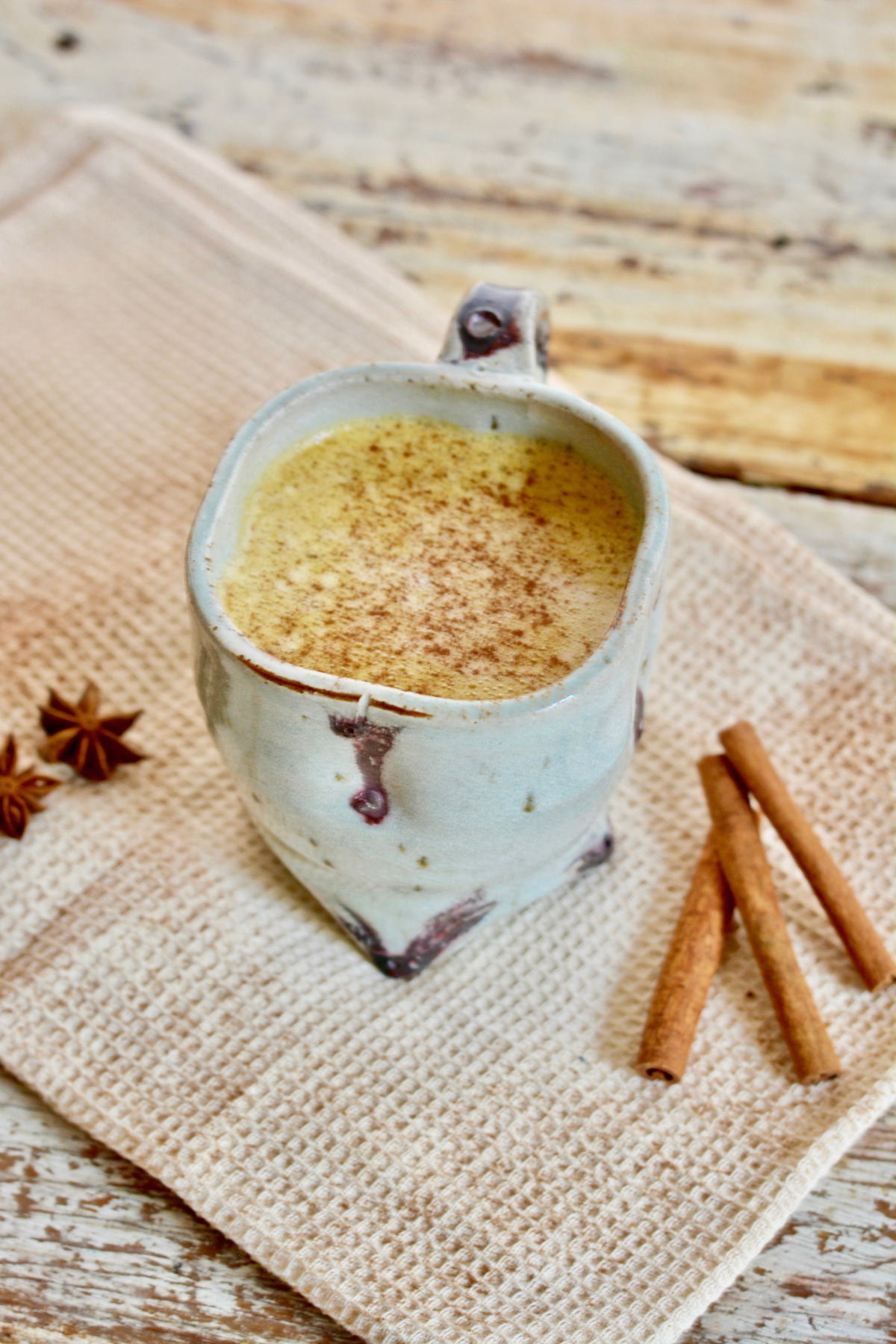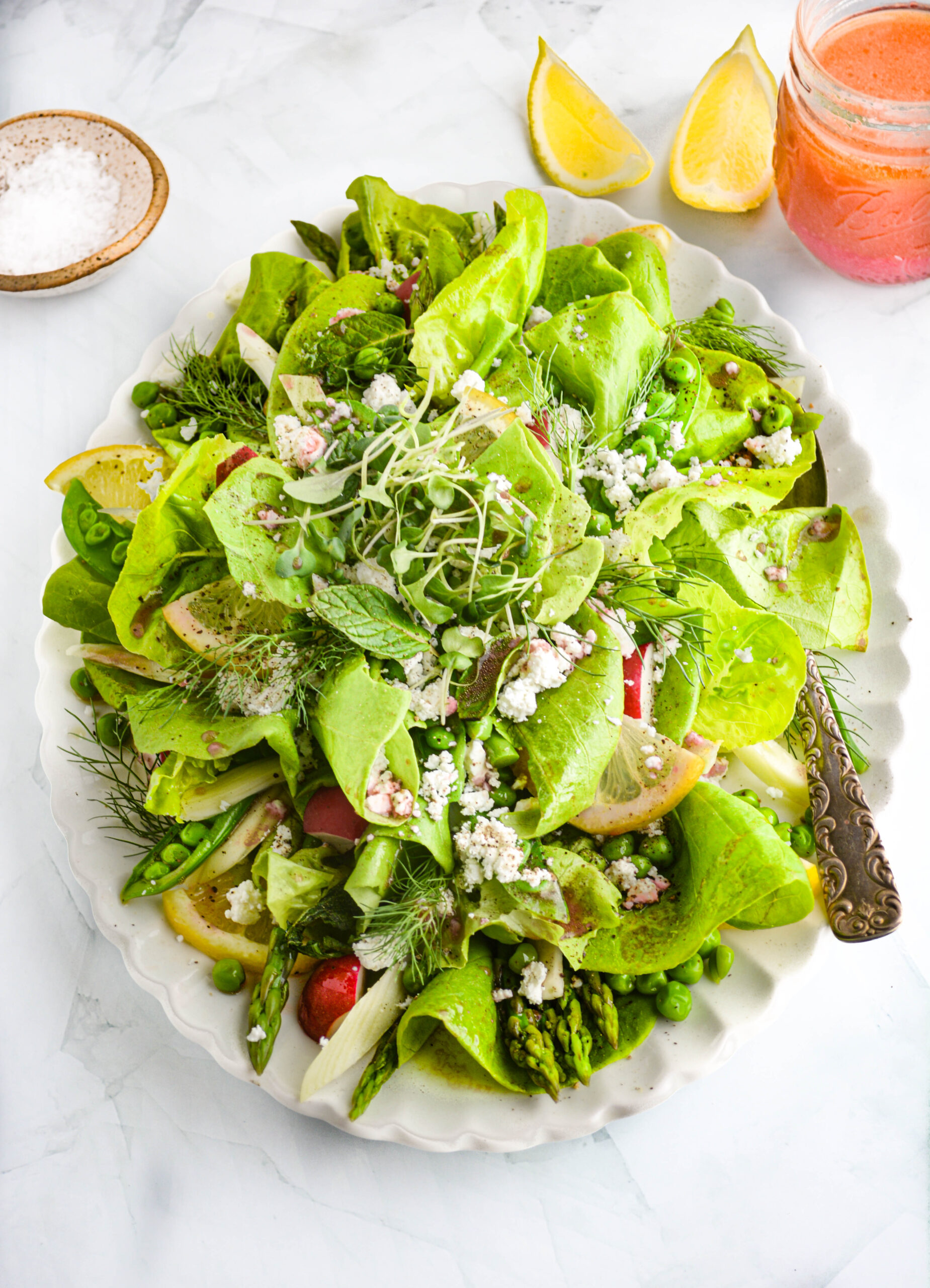How To Make Traditional Folk Syrups for Cold and Flu
Sharing is caring❤️
Learn how to make traditional folk syrups for colds and flu that will help you get better in a matter of days!
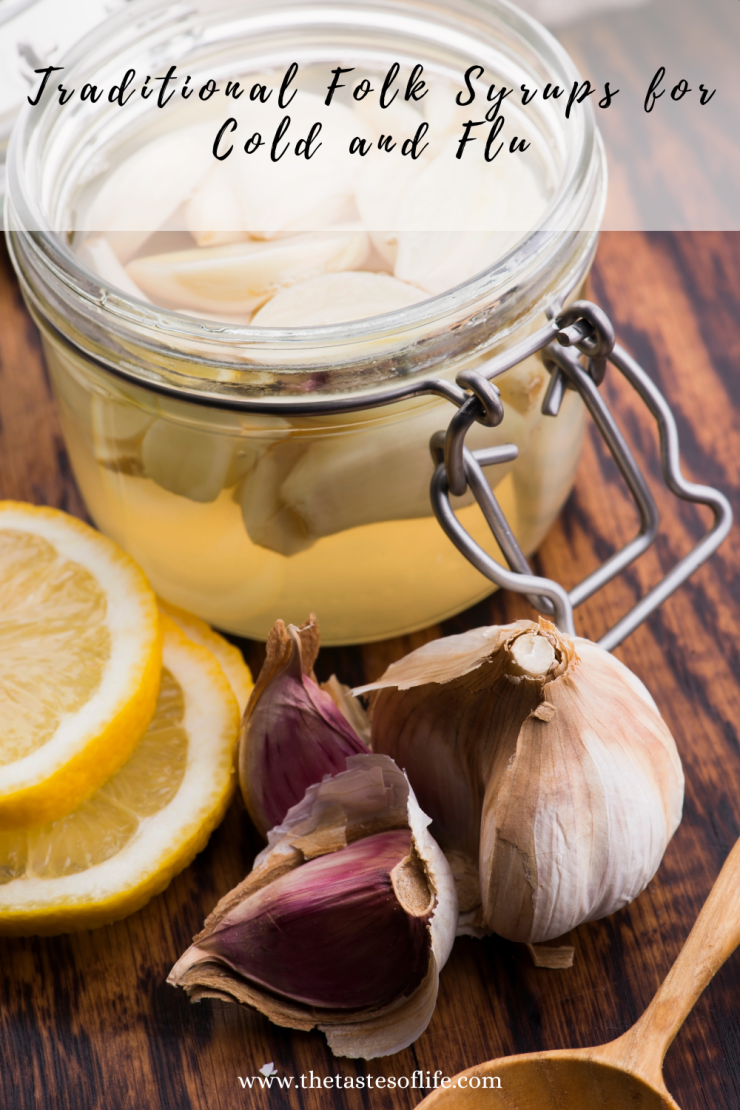
Time-tested Cold and Flu Syrups
Recipes for homemade syrups for cold and flu are passed down from generation to generation. In my family, my grandmother made many variations as soon as she saw any cold symptoms, and she was always prepared for flu season. Traditional folk remedies use natural methods of treating coughs, colds, and sore throats. Granny’s recipes for homemade syrups are top-rated mainly because they are proven and entirely natural methods of helping get rid of colds, coughs and flu symptoms. All you need is a few ingredients to make homemade home remedies that will help you relieve your symptoms. And let’s not forget about chicken soup 😊 I’m sure it saved many of us when we were in trouble. We used to call chicken soup Polish penicillin! Hot soup is wonderful when you are sick.
In a world inundated with modern medicine and pharmaceuticals, there’s something profoundly comforting about turning to the wisdom of our ancestors for herbal remedies. For centuries, communities across the globe have relied on the healing powers of nature to ward off seasonal ailments. From the verdant hills of Appalachia and cold villages in Poland to the sun-kissed villages of Greece, traditional folk remedies have thrived, offering solace and relief to those in need.
How to make cold and flu syrup at home
Try a few proven recipes for syrups from the home medicine cabinet.
Homemade syrups for colds and flu are essential in every medicine chest as we reach for natural remedies and return to proven family recipes for different alignments. When getting viral infections, more and more mothers are happy to choose natural syrups because they are cheap, easy to prepare, and, above all, very effective. They are also natural, hence safe for children and the elderly, and without toxic ingredients.
Homemade syrup relieves sore throat and dry cough, helps cough secretions, warms up, and naturally strengthens the immune system. You can drink the syrup when you feel unwell and weak and at the first signs of a cold or flu, depending on the severity of symptoms. You can combine the syrup with other medications because it is safe for health; as long as there is no allergy to any ingredients, anyone can consume it. You can also mix it up with other syrups, such as elderberry syrup, for an additional boost.
Remember, coughing is not a disease. It is only a reflex that aims to clean the respiratory system of mucus. If the cough intensifies, it is worth visiting a doctor because it may indicate disease.
Garlic syrup – a natural antibiotic.
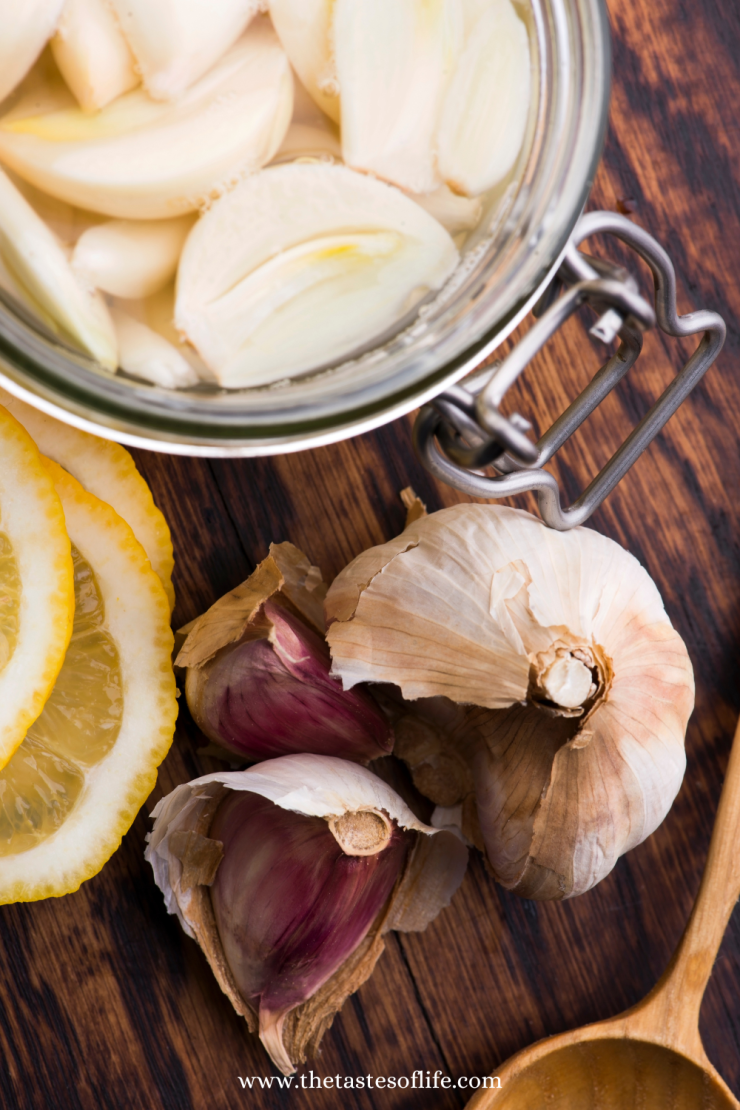
Garlic syrup is another syrup in our repertoire of cold remedies that strengthen immunity. It enhances the body, especially during increased influenza, and is a natural antibiotic. Garlic has antibacterial and antiviral properties. Consuming garlic in large quantities can lower blood pressure and cholesterol; the only drawback is its unpleasant smell. We used garlic syrup prophylactically to strengthen immunity and fight off viruses in my family.
Adults can consume syrup a couple of times a day, taking two tablespoons. Children can consume a smaller amount mixed with another liquid (e.g. milk) or added to dishes and salads. The syrup has a strong taste and smell, sometimes too intense for young children. I like to add elderberry syrup made from dried elderberries to make it more pleasant.
Ingredients:
1 head of garlic,
200 ml apple cider vinegar or lemon juice,
200 ml honey (manuka honey or raw local honey),
boiled and cooled water – optional.
Place the garlic in a bowl and crush it until juice is released. Add vinegar or lemon juice and honey. Blend all ingredients in a blender until smooth. You can add water if you think the syrup is too thick. Pour the syrup into a jar or glass bottle and store it in the fridge for five days. After a few days, the syrup will be ready to drink.
Onion syrup

Onion syrup is one of the most popular remedies for immunity and colds and the most popular cough syrup. It is entirely safe for the health of children and seniors. It has a sweet taste, so it is very popular with children. Like garlic, onions are a source of vitamins and nutrients. It is a great food source of vitamin C, rich in fiber, calcium, potassium, vitamin B6, sulfur, antioxidants, and flavonoids. It contains quercetin, a powerful antioxidant that protects against heart disease and lowers blood pressure and cholesterol. It soothes irritation and allergy symptoms by preventing histamine release from immune cells. Most importantly, onions strengthen the immune system and have great antiviral activity.
Ingredients:
1 onion,
Sugar – I use coconut sugar.
Peel the onion and chop it finely.
Transfer the onion to the jar and cover it generously with sugar.
Cover the jar and let stand for 5-7 hours until the onion releases juice.
After the indicated time, strain the syrup by pouring it through a strainer or gauze. You can use the syrup immediately and during illness, even every 2-3 hours.
Pine syrup – relieves dry cough.
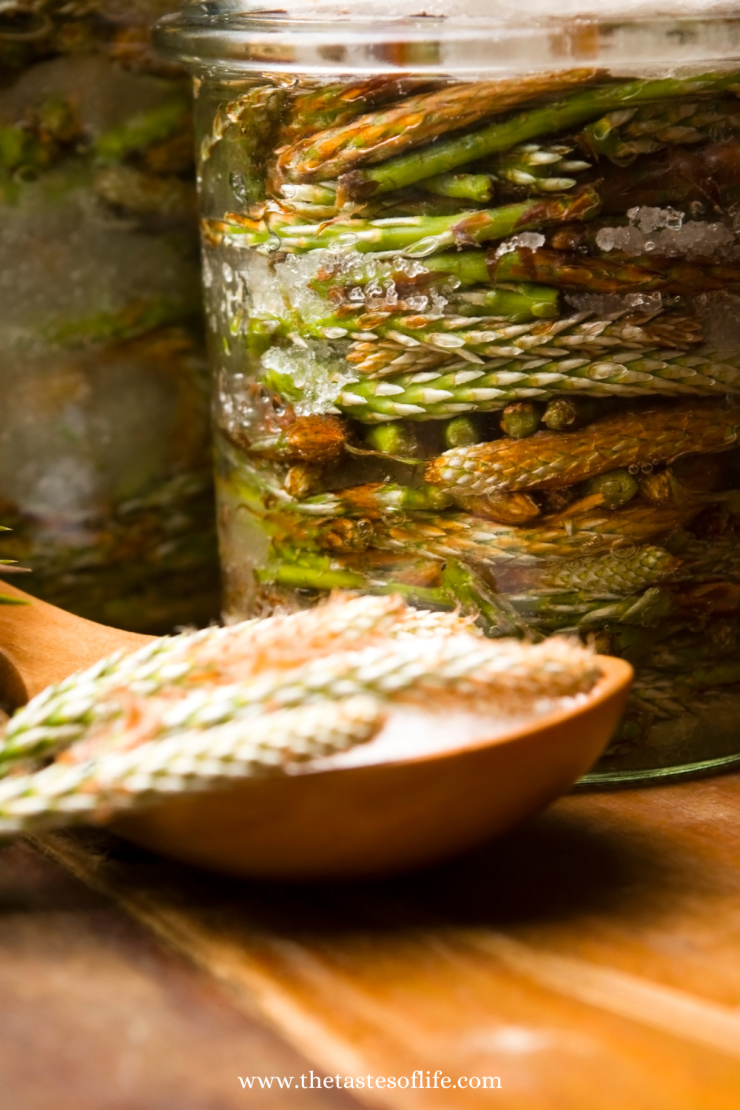
Pine syrup, or syrup from pine shoots, is a great folk remedy for relieving dry cough and a great cough suppressant. The viscous, dense substance has antibacterial properties and facilitates the expectoration of secretions. It supports the treatment of inflammation of the upper respiratory tract and pharyngitis and clears the way of breathing, making breathing easier. Pine syrup is an excellent source of vitamin C, carbohydrates, and mineral salts, which naturally support the body’s immune system. The syrup of pine shoots has a sweet and pleasant taste, and children and adults can consume it. You can drink it it hot tea if you find it too strong.
Asthma, allergy: Pine pollen can cause an increase in allergic symptoms, even in people who test negatively to pine skin tests.
Ingredients:
1/2 lbs of pine shoots
1/2 lbs of coconut sugar
Alcohol (vodka) – optional.
Arrange pine shoots in a jar and cover them with sugar. Arrange another layer, and repeat the process until the pine shoots are gone. If the syrup is going to be used by children, add just a small amount of alcohol. Alcohol speeds up the extraction of juices and strengthens the mixture. Cover the jar with sterile gauze and let stand for 5-6 weeks. After this time, strain the syrup and pour it into glass bottles. Consume 2-3 tablespoons of syrup daily.
Ginger and honey syrup.
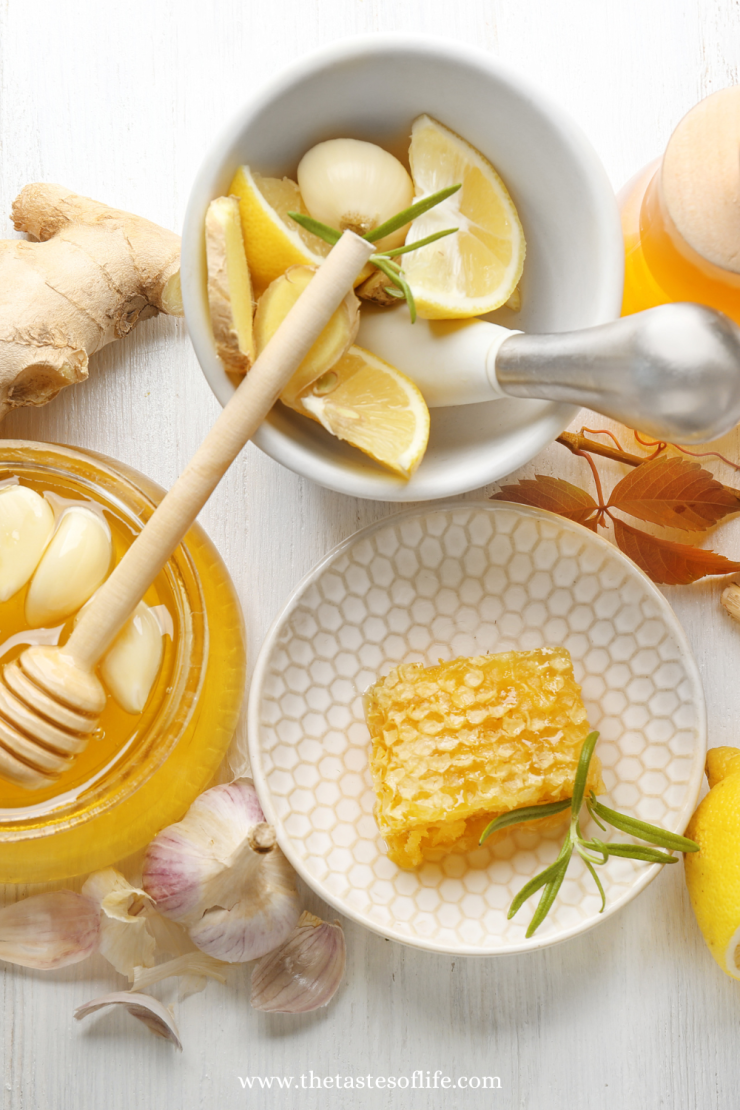
The syrup combines the soothing effect of honey and ginger’s warming properties, which are antibacterial and anti-inflammatory agents and fight bacteria, viruses, and fungi. Add lemon to the syrup, and you will strengthen the mixture with the effects of vitamin C. Ginger, like aspirin, thins the blood and has an anticoagulant effect. Cinnamon has antibacterial properties as well. This recipe should not be used by people who suffer from reflux, peptic ulcer disease, and gastritis.
Ingredients:
Jar of honey
1 lemon
Ginger root
1 tablespoon cinnamon
Pour honey into the jar. Slice the lemon and add honey. Peel the ginger from the skin and grate it. Add it into a jar with honey and lemon. Mix the mixture thoroughly, close the jar, and set aside for 24 hours in a cool place. The syrup can be consumed directly (one teaspoon per day) or added to tea.
You can buy some syrups, such as elderberry syrup, at the health food stores. But they are so easy to make that it is worth having them in your medicine cabinet when you feel the symptoms of a common cold, nasal congestion, runny nose, stuffy nose, or flu symptoms.
Enjoy!
Did you make this recipe?
Please let me know how it turned out for you! Leave a comment below and share a picture on Instagram with the hashtag #thetastesoflifeholisticblog
More Folk Remedies
Yum